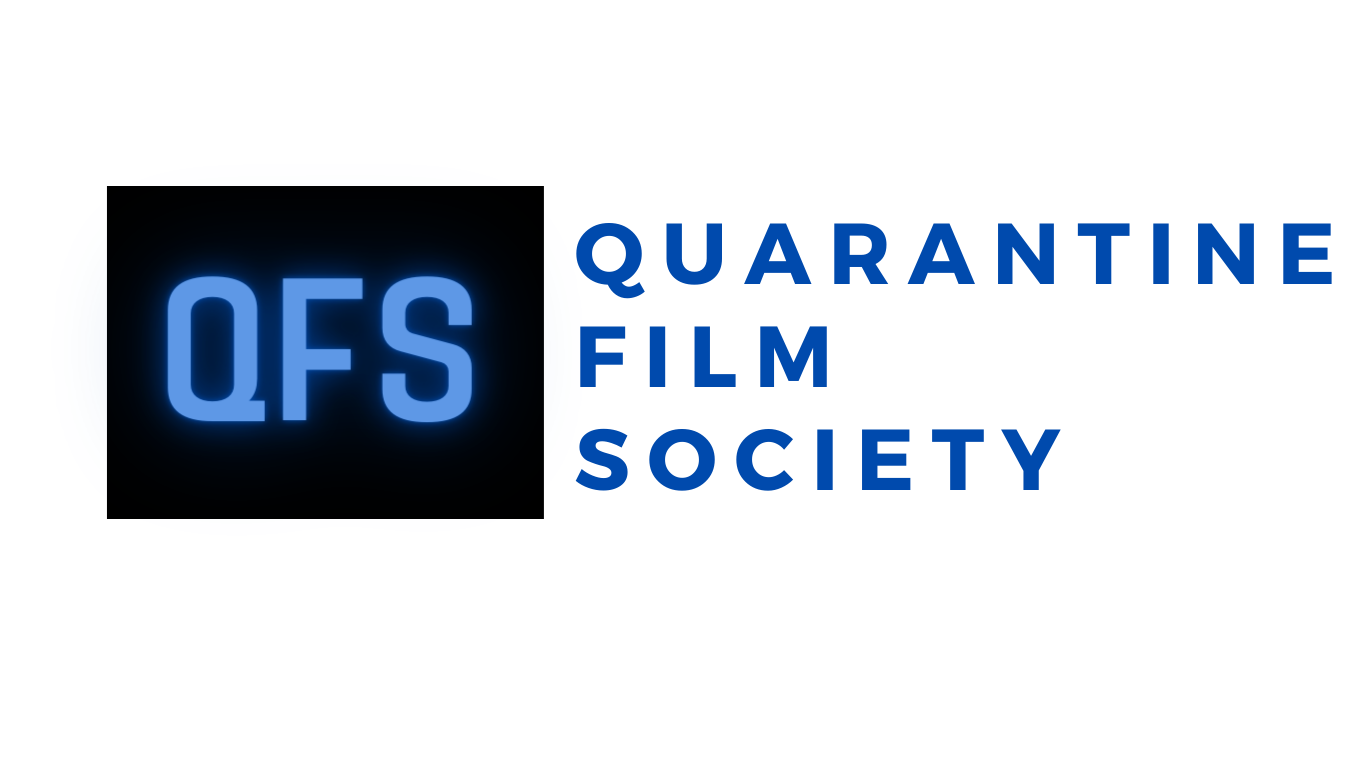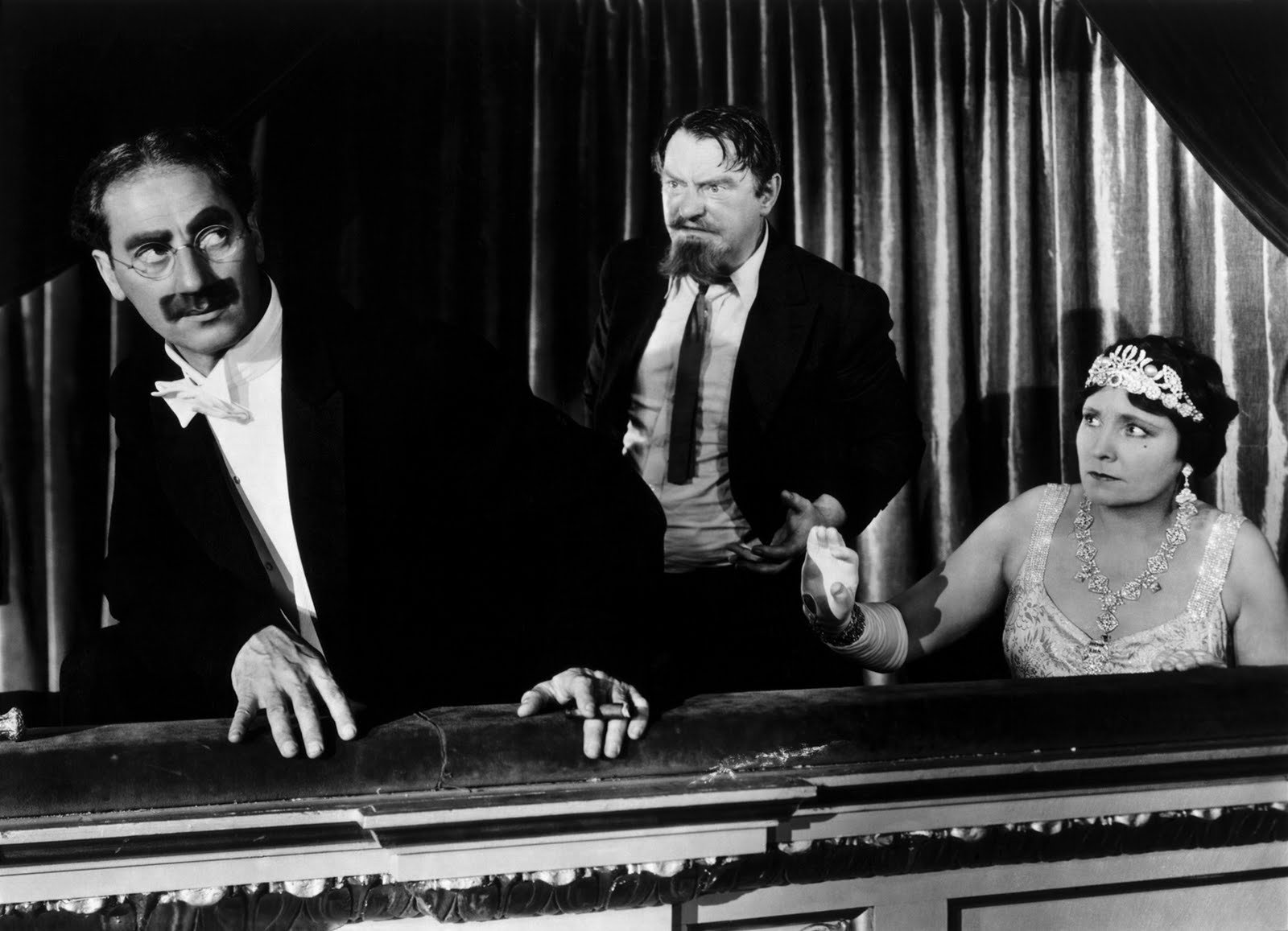A Night at the Opera (1935)
QFS No. 132 - Okay fine, so it’s not exactly a holiday classic, but doesn’t this time of year seem like a perfect opportunity to watch a Marx Brothers film? We haven’t yet selected a film by the comedy legends, and A Night at the Opera (1935) is widely known as one of their best films.
QFS No. 132 - The invitation for December 20, 2023
For our final 2023 selection, we’re going to a holiday classic!
Okay fine, so it’s not exactly a holiday classic, but doesn’t this time of year seem like a perfect opportunity to watch a Marx Brothers film? We haven’t yet selected a film by the comedy legends, and A Night at the Opera is widely known as one of their best films.
I know I’ve seen parts of many of their movies, but I believe I’ve only seen Duck Soup (1933) from start to finish. I have a feeling the redeeming artistic value of this movie might be minimal. But movies are a lot of things – and sometimes they’re just pure entertainment. Comedies are difficult and require so much technical skill, so it should be fun to take a closer look at how they pull of the perfect banana cream pie toss.
And with the holiday break and kids are off of school, this might be a fun one to watch with them for all the gags and mayhem and the answer to difficult trivia questions. For example – can you name all of the Marx Brothers? I got three out of five (answers below)*.
So join us for the final QFS of 2023. I’d love to do more before the calendar turns, but wouldn’t you know it? The strike ended and now there is finally directing work. It’s back to the TV mill for me, hence there will be some pauses coming up for the movie group.
Enjoy A Night at the Opera as we wrap up QFS for 2023!
*Chico, Harpo, Groucho, Gummo and Zeppo. I totally missed Chico and Gummo, in part because Gummo was not in any movies. I have no excuse for missing Chico.
Reactions and Analyses:
Comedy doesn’t always transcend eras. Some can be very specific to the time in which it was created, with cultural references or styles of speaking that become outdated. The Marx Brothers are among those who have managed to create works of comedy that endures beyond their lifetimes.
True, in A Night at the Opera (1935), there are minor handful of contemporary jokes lost on modern audiences. But even in those – such as the one about “quintuplets up in Canada” – the content of the joke itself may not have lasted, but the delivery and Otis B. Driftwood (Groucho Marx)’s reaction and delivery of the line still gets a laugh: “Well, I wouldn't know about that; I haven't been in Canada in years.”
Any discussion about A Night of the Opera is going to center on the Marx Brothers, of course, because when you get down to it, that’s really primarily what the movie is – a launching point for their comedy. Much of our discussion was about the brothers and almost no talk about the plot or the filmmaking. Which is the point; it is, after all, a Marx Brothers movie.
In addition to Groucho’s near-perfect, constant one-liner deliveries, the Marx Brothers are simply the greatest agents of chaos in movie history. Throw them into any situation, and that’s what you get – chaos. That’s the hallmark of a Marx Brothers movie. The difference, perhaps, in this film is with the inclusion of some musical numbers, the attempt at a love story, and only minor social commentary (as opposed to the more direct commentary in Duck Soup, 1933)
Several QFS members pointed out how one can see their influence on future comedians - Martin Short came to mind, the magic of Penn and Teller, and even Mel Brooks. Rodney Dangerfield is the clearest heir to Groucho Marx we could think of and the discovery of that delighted me immensely.
One QFSer felt less sanguine about the film, that it was repetitive and there wasn’t a story – as compared to a Charlie Chaplin film, for example. Chaplin’s films, though often featuring the same Tramp character, had a strong storyline, a social commentary, pathos, and of course groundbreaking visual comedy and sight gags. Marx Brothers movies, however, were merely a way to setup the Marx Brothers wreaking havoc in a straight world around them. Both are funny, both have endured, and both have stood the test of time. Where Chaplin used artistry to enhance his comedy, the Marx Brothers relied on their on-screen personas and vaudevillian skills to enhance theirs.
One way of thinking about this, to me, is there are movies that are funny (Chaplin’s Modern Times, 1936) and there are funny movies (A Night at the Opera). Movies that are funny are films with a compelling driving narrative that’s told in a funny and artful way. Funny movies are comedies that favor humor and gags above the plot and storyline. This is an utterly unsophisticated way of putting this, but a distinction between styles of films that make audiences laugh is worth considering. How do you make someone laugh? There’s no one way and the differences between how Chaplain does it and the Marx Brothers do it provide some insight into that. A deep dive into this comedy would be, of course, a lot of fun.
Generally speaking, the group agreed that though the plot was thin and perhaps unnecessary even, this is a film that you can probably just pick up at any point and simply enjoy the gags – the absurd amount of people in the cabin, the disappearing beds, the contract negotiation, the final opera, and so on. Perhaps a funny movie doesn’t need to be much more than that.



